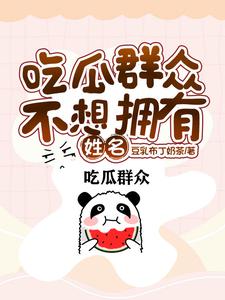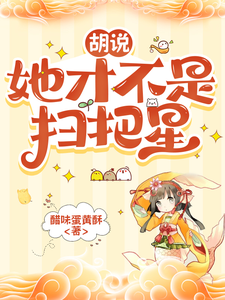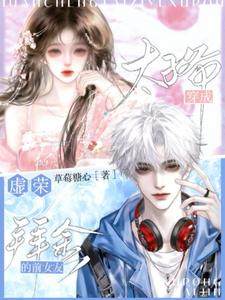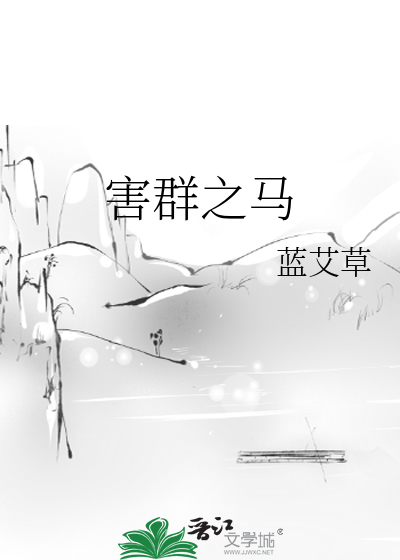Shen Miao squatted there observing for a long while. The chicks in Aunt Li’s household must have been hatched by several different hens, as their feather colors and sizes varied, all mixed together.
After much deliberation, she finally caught a speckled chick. She turned the chirping little bird over, blew on the yellow-white-black down around its vent, and checked its sex—male chicks have a noticeable protrusion near the vent, while females do not. This one was a hen.
For egg-laying, hens were essential. She chose this one, then picked out a white-feathered rooster chick—because Sister Xiang had taken a liking to it. This one had no stray markings, even its tail feathers were pure snow-white, with only a tiny red comb atop its beak. Its frame was sturdy too, truly a handsome little bird.
Next, she had Ji Brother pick a yellow-headed hen chick. Shen Miao then stood up, dusting her hands. Best not to raise too many at first. In her past life, she’d only ever slaughtered chickens, never raised them. These chicks weren’t even half the size of her palm—what if she accidentally killed them? Better start with just three for practice.
Aunt Li, stitching shoe soles while watching Shen Miao and the children pick their chicks, thought to herself, This Shen girl knows her stuff—even checks their sexes! Raising an eyebrow, she said, “All picked out? The hens are six coppers each, the rooster seven. Once that little rooster grows up and starts crowing, you could sell it at the livestock market for three hundred coppers!”
Shen Miao had bought live chickens before—a full-grown one cost seventy coppers. Ordinary chicks could go for eight to ten coppers, while prized breeds like the Gushi or Luhua chickens fetched over a dozen coppers per chick.
Aunt Li’s flock was likely just common local Bianjing hybrids, too mixed to belong to any particular breed. Upon closer inspection, only Ji Brother’s yellow-headed chick vaguely resembled a "Sanhuang chicken"—yellow beak, yellow feathers, yellow feet—though its body seemed smaller than the others.
Come to think of it, Sanhuang chickens made for exceptionally fragrant stew.
Shen Miao gazed tenderly at the chick, as if already envisioning it transformed into a pot of rich chicken broth.
“My prices are fair,” Aunt Li added, mistaking Shen Miao’s silence for hesitation. “These chicks have been fed for over ten days since hatching—each one sturdy. See how clean their vents are? No diarrhea stains. Buy elsewhere, and you might get sickly chicks that die within days.”
Shen Miao nodded. Aunt Li’s prices were indeed reasonable, and since they were neighbors, she saw no need to haggle further. She promptly counted out nineteen coppers, placed the chicks in a small woven basket she’d brought, and prepared to leave.
Just then, Aunt Li seemed to remember something and smiled at Ji Brother. “Ah, Ji Brother, aren’t you done with Teacher Liu’s private school? If you’re free these days, why not come over and study with Gou Er? My husband’s always out peddling goods, never home. Today at the market, I heard the Imperial Academy’s Piyong College is holding summer exams next month to enroll young scholars. Gou Er’s still young, but I’d like him to try—if only for the experience!”
Though she said this, her proud expression betrayed higher hopes for her son.
Shen Miao’s interest piqued. The original host’s memories suggested the Imperial Academy had strict entry requirements. “Doesn’t the Academy only admit children of seventh-rank officials or higher?”
“You’ve been away three years, so you wouldn’t know—the rules have changed!” Aunt Li lifted her chin, as if boasting about her own establishment. “The authorities implemented the ‘Three Halls System.’ Now the Academy has Upper, Middle, and Lower Halls, further divided into Inner and Outer Divisions. The Inner Division still admits only officials’ children, but the Outer Division—at the Piyong College in the southern suburbs—accepts anyone who passes the summer exams, even commoners and children of eighth-rank officials!”
Shen Miao’s eyes sparkled. “When exactly are the summer exams?”
“Same as last year—mid-to-late May.” Aunt Li glanced at Ji Brother, then added with a meaningful smile, “Thinking of having Ji Brother try? Then you’d best reform his habits. Forgive my bluntness, but word is he’s been slacking at Teacher Liu’s school—mediocre at studies, always sneaking off to bookshops to read novels all day. If he keeps this up, even ordinary schools would be a waste of coin, let alone the Imperial Academy…”
Ji Brother flushed crimson, lowering his head without retort.
Shen Miao shot him a glance but kept her composure, smiling faintly. “Thank you for the information, Aunt Li. But Ji Brother’s still young—who hasn’t made mistakes? As the saying goes, Let bygones be bygones, and from this day forth, begin anew. I never judge people by their past. Besides, rumors are just that—unreliable.”
With that, she ignored Aunt Li’s stunned expression, straightened her posture, gave a slight bow, and firmly led her siblings away by the hand.
Aunt Li, clutching her half-finished shoe sole, stared puzzled at their retreating figures. “Since when did Shen Miao, married to a scholar, start spouting such refined phrases? Bygones be… something-something…” She stumbled over the words, tongue tied, before shaking her head and resuming her stitching.
Meanwhile, Shen Miao’s words had struck Ji Brother like a thunderclap.
“Let bygones be bygones, and from this day forth, begin anew…” He muttered it repeatedly under his breath, savoring each word, until he finally looked up at Shen Miao with dawning admiration, eyes alight.
Shen Miao felt a prickle of unease down her spine. Then it hit her—Oh no. That quote came from Liao Fan’s Four Lessons, a Ming Dynasty text by Yuan Huang! She’d blurted it out without thinking, and now Ji Brother seemed to treat it as life-changing wisdom.
My apologies, Yuan Huang. I’ll set the record straight someday! She wiped imaginary sweat from her brow.
By the time they reached home, Sister Xiang had paid no attention to her siblings’ conversation, wholly absorbed in the chicks. The moment they entered the courtyard, she eagerly released them, chasing the tiny birds around with gleeful laughter.
That day, Shen Miao had tied her hair into two perky little braids, which bounced like tiny wings as she ran around. Dressed in a soft yellow outfit, she looked like a plump little bee from afar—utterly adorable.
Meanwhile, Ji Brother’s footsteps grew heavier and heavier until, as if steeling himself, he tugged at Shen Miao’s sleeve and haltingly explained, "Elder Sister, I didn’t sneak off to the bookstore just to read idle books..."
Shen Miao already knew. With a smile, she said, "I’m aware. You were copying books to help with household expenses, weren’t you?"
Ji Brother’s head snapped up, his eyes wide with disbelief—how could Elder Sister have figured it out?
"Aunt has been so harsh on you both. When I first saw you, you were sickly pale, thin as a bamboo stalk, and far too mature for your age—nothing like the mischievous child you used to be. Yet Sister Xiang remains as carefree and bubbly as ever, her cheeks still round and rosy, completely unchanged."
Shen Miao bent down, meeting his gaze gently. "I told you the day I arrived, Ji Brother—you’ve taken such good care of your little sister these three years I’ve been gone. You’ve endured so much."
For a moment, Ji Brother stood frozen. Then, as if fighting back tears, he abruptly turned away and bolted out the door. Shen Miao didn’t chase after him, simply calling after his retreating figure, "Don’t forget to come back for dinner later."
He needed a quiet place to be alone, to let his tears flow undisturbed.
It was better not to intrude.
Shen Miao peeked outside and reminded Sister Xiang not to chase the chickens too much—she might frighten them to death. Then she returned to the kitchen to prepare the dough for tomorrow’s flatbreads. Once the dough was ready, she washed her hands and stepped out, asking Aunt Gu to keep an eye on Sister Xiang while she visited several grain shops to compare prices.
By the time she returned, Ji Brother had already slipped back inside, calmly helping Sister Xiang mix water into the wheat bran they’d sifted that morning to feed the chickens.
"Perfect timing. Both of you, come with me to buy some beans."
Shen Miao wasn’t making sausages tomorrow. Besides hand-pulled flatbreads, she planned to bake some bread. In Bianjing, most steamed buns and pastries followed traditional Chinese methods—delicate, sweet, and often stuffed with ingredients like flaky pastry, nuts, or lard.
Western-style baked bread, however, was entirely different—heartier, more affordable, and perfect as a staple. Shen Miao intended to make simple red bean loaves: golden-brown with a slight crispness, textured on the outside and filled with sweet bean paste—tasty, cheap, and visually appealing.
Most importantly, red bean bread was far cheaper than sausages. In the Song Dynasty, beans like red beans and mung beans cost much less than rice or wheat flour. Even sugar was cheaper than salt. After visiting nearly every grain shop in the inner city, Shen Miao had a good grasp of prices and felt ready for tomorrow’s market.
Though her stall bore the sign "Shen’s Flatbread Shop," in the Song Dynasty, almost all wheat-based staples were called "flatbreads," so this wasn’t straying from her trade.
She’d also pick up some writing supplies for Ji Brother.
Aunt Li claimed Ji Brother was mediocre in his studies and unlikely to pass the Imperial Academy exams, but Shen Miao had faith in him.







